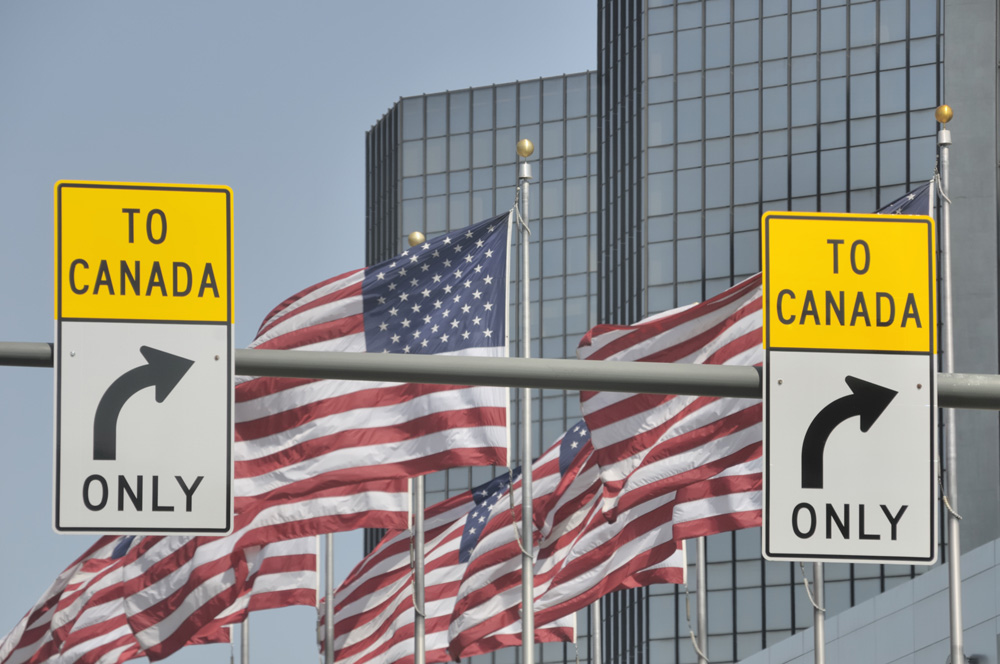A return to harsh enforcement of U.S. federal marijuana laws creates a market opportunity for Canada’s cannabis companies, a Canadian pot entrepreneur argues.

Recreational marijuana has become legal in more and more U.S. states – four states currently have legal pot, and four more voted to follow them last fall. And in the wake of more permissive laws, a thriving pot-related culture developed.
So it was easy (for a while) to ignore an awkward fact – from the U.S. federal government’s point of view, absolutely all of it is still illegal.
The Obama administration took a tolerant view of states that chose to legalize pot, but a letter sent to U.S. governors by the Trump administration seems to signal that that party may be over.
WATCH: Public Safety Minister Ralph Goodale told the media Thursday that the federal government will intervene if border crossings into the U.S. become more difficult due to marijuana legalization.

READ MORE: Why Donald Trump could be the Canadian marijuana industry’s secret weapon
All of this uncertainty opens the field for Canadian marijuana companies to compete internationally, says Bruce Linton, CEO of Smith’s Falls, Ont., cannabis producer Canopy Growth. U.S. cannabis producers are finding it hard to raise capital and function as conventional companies.
“What it means for Canada is that Canadian companies are welcome to participate in the German market, which we’ve been asked to, or the Danish market.”

Get breaking National news
“We’re seeing few, or no American participants in the international markets, which is kind of helpful because they tend to be pretty good competitors.”
Since there’s not much that U.S. cannabis companies can do that isn’t federally illegal — even if the laws aren’t being enforced at the moment — it makes investors and business partners nervous.
“It is a different environment,” Linton says. “Banks are cautious, more than they ever were. There’s no chance of getting senior audit firms – you can’t call Deloitte or PwC. Now they’re concerned that they’re not going to be able to call Larry and Joe’s accounting company in a state. It is a changed environment.”
READ MORE: Pot use after it’s legalized in Canada could still get you barred from U.S., lawyer warns
Prime Minister Justin Trudeau’s Liberal government has promised to legalize recreational marijuana in Canada by July of 2018.
As Canada becomes more permissive and the U.S. more repressive, Linton predicts, the border will resemble the period during Prohibition when liquor was legal in Canada but banned nationally across the United States. Many Americans came to prefer Canadian-made rye produced in professionally run distilleries to black-market bathtub gin made closer to home.
Nearly a century after Prohibition, the situation with pot has some similarities. Illegal cannabis markets can only provide buds and leaves for smoking, because people buying from a dealer can clearly see what they are. High-quality cannabis edibles can only really be produced in a legal environment, which only Canada can provide, after legalization.
“Seagram’s became a hell of a big company because they figured out how to make brands and products when people were basically drinking grain alcohol in America.”
“When Prohibition existed, they did pretty well. I think you’re going to see Canadian companies figure out a lot of stuff over the next three or four years, while America is in a bit of turmoil — that’s going to create great products and great companies, and when it’s legal and proper to go in, we’re going to do OK.”
Jeff Sessions, Donald Trump’s attorney-general, is an uncompromising, old-school foe of the demon weed, who told Congress last year that “we need grown-ups in charge in Washington to say marijuana is not the kind of thing that ought to be legalized.”
READ MORE: Legal marijuana in Canada could slow border crossings, expert fears
In late July, he wrote to governors of at least three of the pot-legal states, hinting strongly at a federal crackdown. (The letter amounted to a rejection of advice to Sessions to keep things more or less as they are.)
The version sent to Washington’s governor cited a 2016 report which he said: “raises serious questions about the efficacy of marijuana ‘regulatory structures’ in your state.”
The letters are “making everyone nervous,” said Oregon Gov. Kate Brown.
U.S. medical marijuana companies have been rejected by the NASDAQ, which requires that companies selling shares follow state and federal law, Linton says; some have sought investors in Canada.
“If you’re a medical marijuana producer in America, you can’t list on NASDAQ, yet that same company can come to the Canadian Securities Exchange and list, get the money and do what they couldn’t get the money in their own country to do.”


Comments
Want to discuss? Please read our Commenting Policy first.